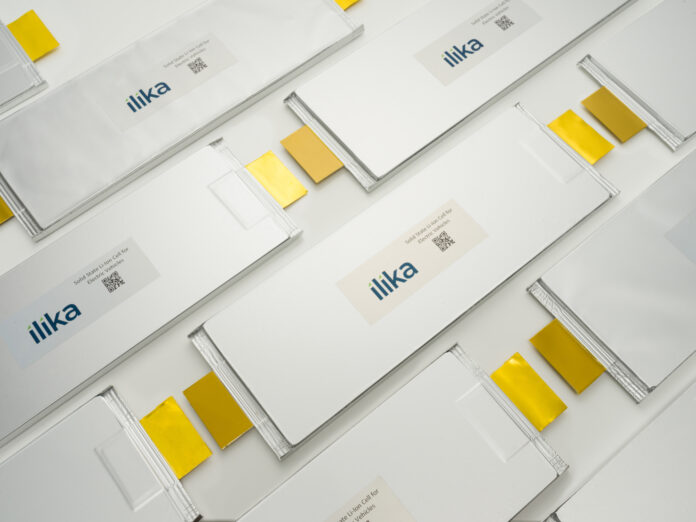Electric vehicles are constantly improving, but there’s no doubt the ever-evolving petrol and diesel alternatives still face scrutiny from consumers.
Whether it’s range, charging times or safety, electrics are yet to fully convince many households to end their long relationship with internal combustion engine cars.
Though industry figures showed electric vehicle sales up by 13.2% over the year so far last month, a separate YouGov poll found over half of petrol or diesel car owners wrongly believed eight out of 10 incorrect misconceptions about electrics.
Indeed, “myths” around electrics appear to be holding many back from making the switch, thinktank Energy & Climate Intelligence Unit said, including a belief that electrics were more likely to catch fire than petrol cars
That said, if safety and the risk of battery fires is what was holding people back, Ilika PLC would be well-positioned to provide some much-needed comfort for sceptics.
Tackling the safety concerns
AIM-listed Ilika has recently reported a series of tests showing its Goliath solid-state cell battery prototype to be superior in terms of safety when compared to units already in use.
A nail penetration test last month, simulating a catastrophic incident, saw its solid-state battery neither explode nor catch fire.
Other commonly used lithium-ion batteries can often jump to temperatures exceeding 600 degrees celsius from such nail tests.
Ilika’s did not even break the 80 degrees mark.
“It’s not that current electric vehicles are unsafe,” chief executive Graeme Purdy told Proactive, “in fact it’s quite the contrary”.
Given the risk of higher temperatures were a lithium-ion battery to catch fire, Purdy explained “significant engineering” went into protective reinforcements within packs.
However, this was at the expense of extra weight and higher costs, he highlighted.
“By moving to a safer cell design with a higher tolerance to higher temperature, like Goliath, the mechanical protection required for the pack and the capacity of the cooling system are reduced,” Purdy said.
Goliath solid-state cell battery
Goliath is Ilika’s answer to safety issues, and in turn weight and cost, problems.
While lithium-ion batteries use a liquid electrolyte solution between their cathodes and anodes, alternatives like Ilika’s use solid electrolytes.
This means solid-state batteries are more energy dense than their lithium-ion counterparts, so can put out more power despite being lighter, with Ilika’s ceramic-based technology boasting the added bonus of being easier to recycle.
For the UK-based company, last month’s test, which was carried out by University College London, built on evidence that Goliath’s design was superior in terms of safety when compared to lithium-ion counterparts.
Given that lithium-ion cells power most electric vehicles on the road today, the test also gave a glimpse of the technology on course to power such cars in the future.
Longer ranges and faster charging
That is, it’s not just safety where emerging batteries like Ilika’s beat lithium-ion products, but higher density and reduced weight also allow longer electric vehicle ranges.
Coupled with the fact that solid-state batteries have charging times comparable to the best lithium-ion products, Panmure Liberum analysts said the scope for those like Goliath was as yet “undervalued” by the market.
“With several share price catalysts across its [Ilika’s] core divisions over the next 18 months […] investors can look forward to some of this value being reflected in the share price in the short-term,” analysts said.
Production ramp up
This was as potential licensing opportunities for Goliath with car makers and original equipment manufacturers emerged as Ilika turned attention to ramping up production.
Ilika had highlighted a pipeline of evaluation agreements with some 17 companies for Goliath in results last July, alongside a year-long collaboration with Tata Group’s Agratas battery business.
This included an agreement outlining “potential longer-term collaboration through to gigafactory implementation,” Ilika added at the time.
Panmure, Ilika’s house broker, reiterated a ‘buy’ for Ilika following the Goliath test as a result, while a 70p share price target, representing a 280% upside to its close as of the update, was set.
Goliath, complemented by Ilika’s power units for the likes of cordless household products, but also its Stereax miniature medical battery range, should stand to benefit from an anticipated boom in the value of the electric vehicle battery market to £9 billion by 2030 then.
Indeed, though EV sales have slowed from their previous rate of growth, they are still edging higher in the UK, with improved safety and performance characteristics only set to drive demand.
As Purdy put it: “The safety unique selling point that Goliath batteries have demonstrated is not to be underestimated.
“Lighter electric vehicles have a longer range and cost less to manufacture.”




